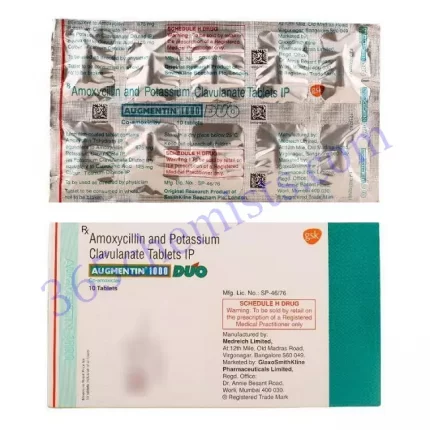Baycip 500mg Tablet (Ciprofloxacin)
The antibiotic medication Baycip 500mg Tablet, which is also known by its generic name Ciprofloxacin, is a medication that is frequently prescribed for the treatment of a wide variety of bacterial infections. It is a member of the group of medicines known as fluoroquinolones, which are effective against bacterial infections because they prevent the growth and spread of bacteria in the body. The purpose of this detailed guide is to offer a comprehensive understanding of Baycip 500mg Tablet, including its applications, dosage, potential adverse effects, and safety considerations.
Uses of Baycip 500mg Tablet:
The Baycip 500mg Tablet’s primary function is to treat bacterial infections that can occur in a variety of locations throughout the body. Infections of the urinary tract, respiratory tract, skin and soft tissue, gastrointestinal tract, and certain types of sexually transmitted diseases are some of the most common indications for its use. Additionally, it can be used to treat and prevent infections in people whose immune systems are compromised, such as those who have HIV or AIDS.
Dosage and Administration:
Oral administration is an option for those who choose to use the tablet form of Baycip 500mg. It is possible for the dosage and length of treatment to change depending not only on the type of infection, but also on the patient’s age, weight, and general state of health. It is essential to take the medication exactly as directed and to finish the full course of treatment in order to guarantee that the infection will be effectively treated. The Baycip 500mg Tablet should be taken twice daily, preferably with a full glass of water. This medication may be taken with or without food, but it is recommended to take it with water.
Related Product
Baycip 250mg Tablet
Baycip 500mg Tablet
Side Effects:
The Baycip 500mg Tablet, like any other medication, carries the risk of producing side effects. Nausea, vomiting, diarrhoea, pain in the abdominal region, headache, and dizziness are common adverse reactions that can occur. These adverse effects are, in most cases, relatively mild and transient. Nevertheless, it is imperative that you seek medical attention if any of these symptoms continue or get worse over time. Extremely serious adverse effects, such as tendonitis, tendon rupture, allergic reactions, or nerve damage, have been reported in extremely rare instances in patients taking Baycip 500mg Tablet. In the event that any of these serious adverse effects manifest themselves, immediate medical attention needs to be sought.
Precautions and Warnings:
Before beginning treatment with Baycip 500mg Tablet, it is imperative that you discuss any preexisting medical conditions, allergies, or medications that you are presently taking with your healthcare provider. During treatment, patients who have certain medical conditions, such as epilepsy, myasthenia gravis, kidney or liver disease, or a history of tendon disorders, may need to have their dosage modified specifically or be monitored more closely than other patients. When treating patients who have a history of allergic or hypersensitive reactions, it is important to use caution when administering Baycip 500 mg Tablet.
Drug Interactions:
It is possible for the Baycip 500mg Tablet to interact with other medications, such as those used to treat diabetes or mental disorders, as well as blood thinners, antacids, corticosteroids, non-steroidal anti-inflammatory drugs (NSAIDs), and certain medications used to treat arthritis. Because of these interactions, the medication may not work as well or the patient may be more likely to experience unwanted side effects. It is imperative that you inform your healthcare provider about all of the medications, supplements, and herbal products that you are taking in order to prevent any potential adverse reactions from occurring as a result of drug interactions.
Pregnancy and Breastfeeding:
When considering the use of Baycip 500mg Tablets during pregnancy or while breastfeeding, a conversation with a qualified medical professional is recommended. It’s possible that the active ingredient in Baycip 500mg Tablet, ciprofloxacin, could pose some risks to an unborn child or an infant who is being breastfed. Before making a choice, it is important to give careful consideration to both the benefits and the dangers associated with taking this medication while pregnant or while breastfeeding.
Conclusion:
Baycip 500mg Tablet, also known as Ciprofloxacin, is an antibiotic medication that is frequently prescribed for a variety of bacterial infections. In order to ensure that the infection is effectively treated, it is essential to take the medication in the exact manner in which it was prescribed and to finish the full course of treatment. It is essential to be aware of any potential severe side effects and seek medical assistance if they manifest themselves, even though the majority of side effects are mild and only temporary. You can ensure the safe and effective use of Baycip 500mg Tablet by having a conversation with your healthcare provider about any existing medical conditions and medications you are currently taking. Always seek the advice of a qualified medical professional for personalised guidance concerning your unique medical requirements.












